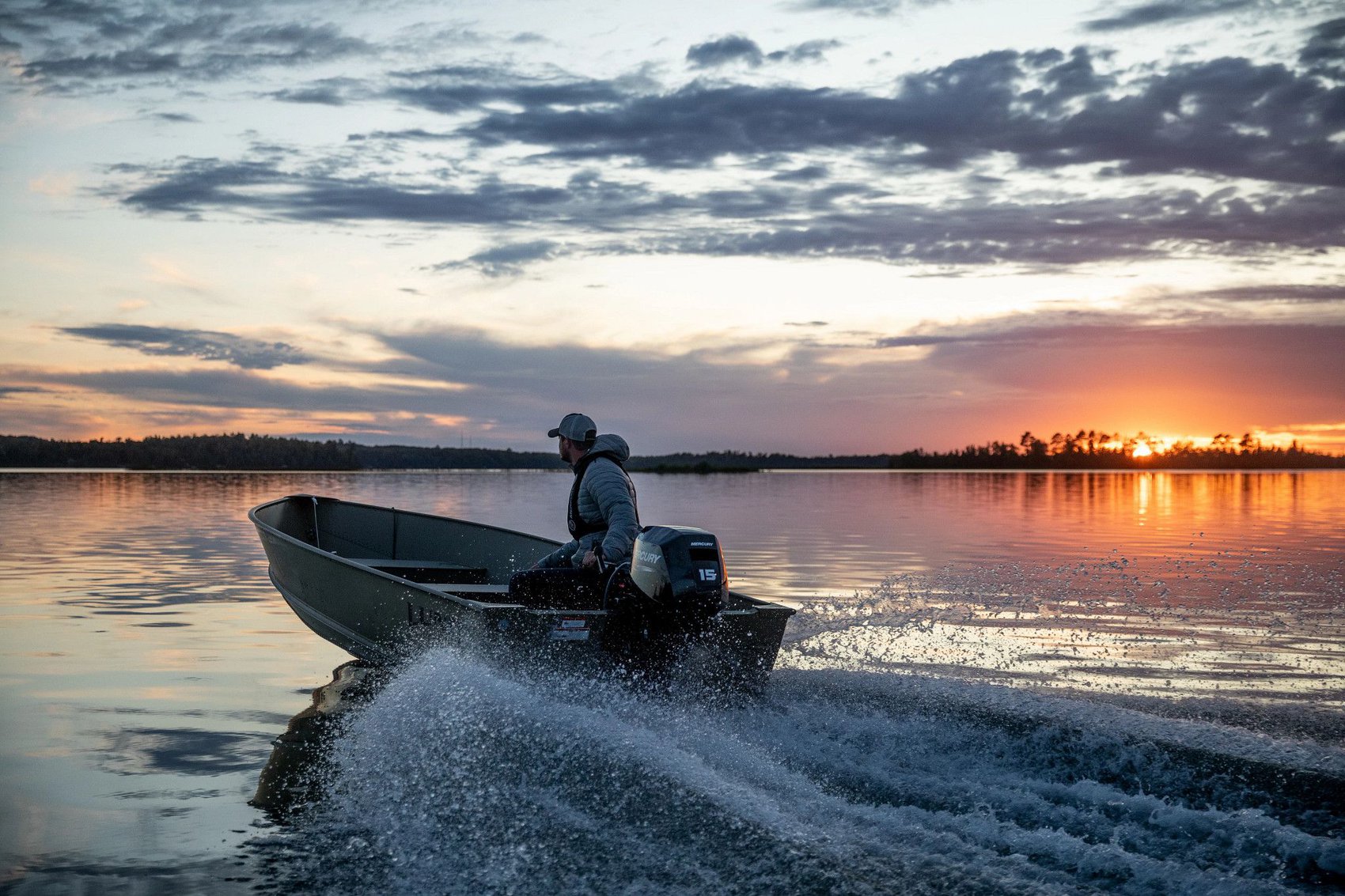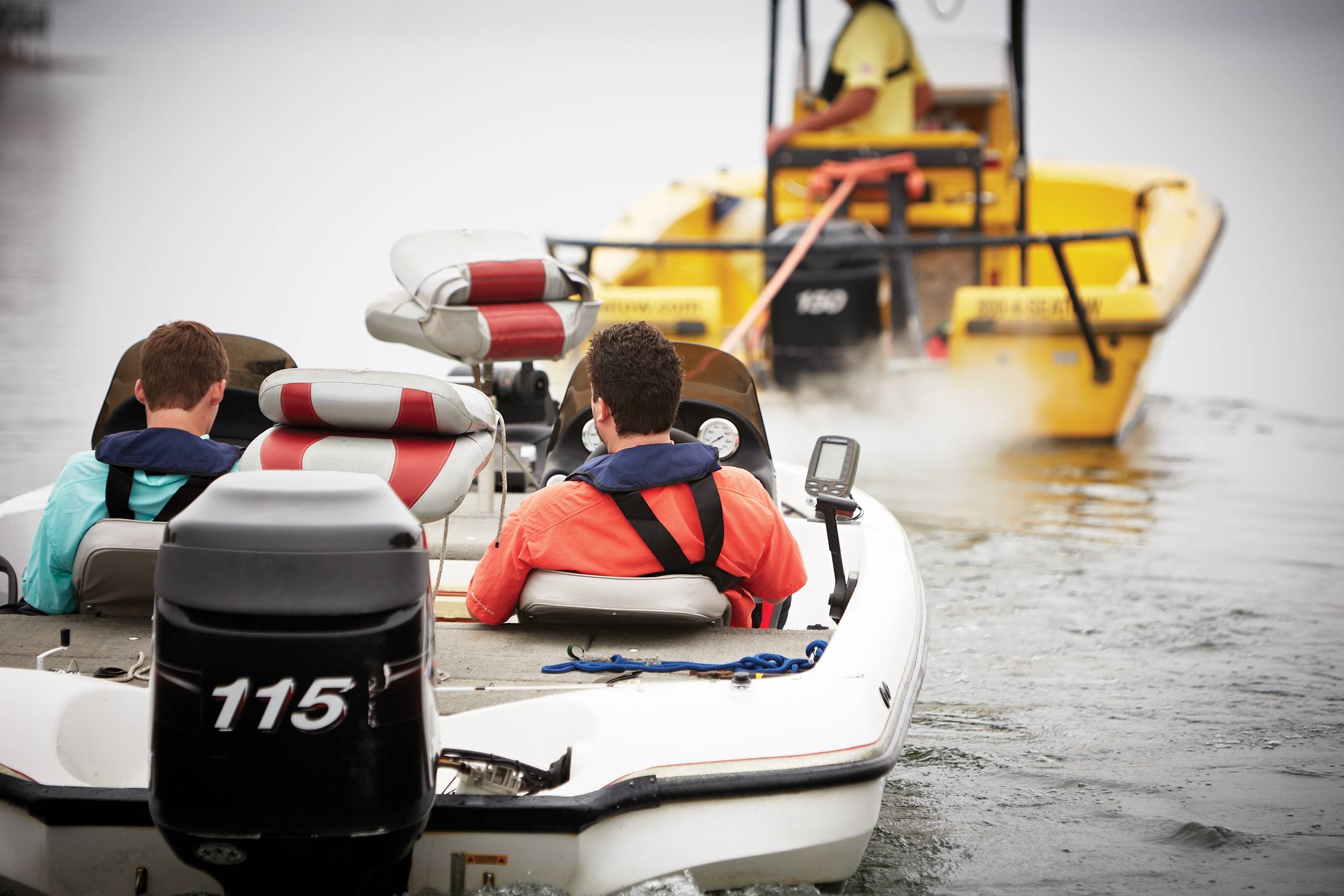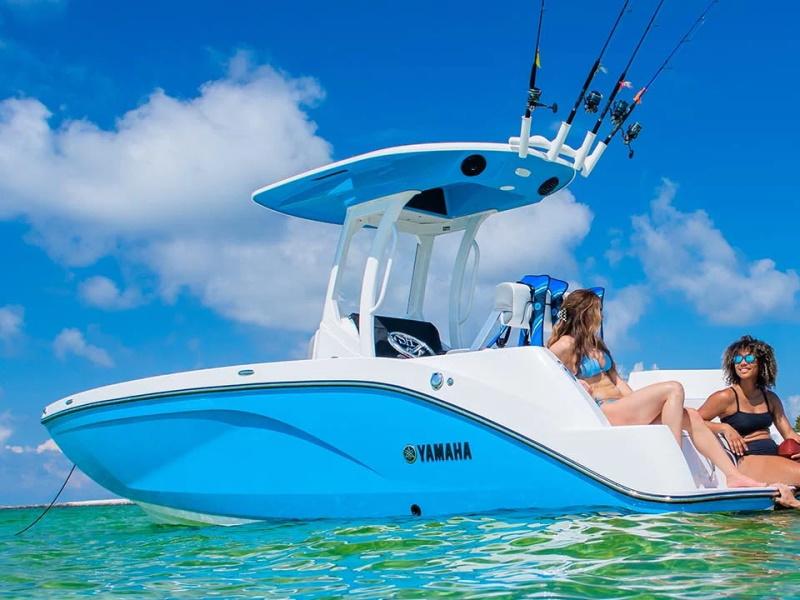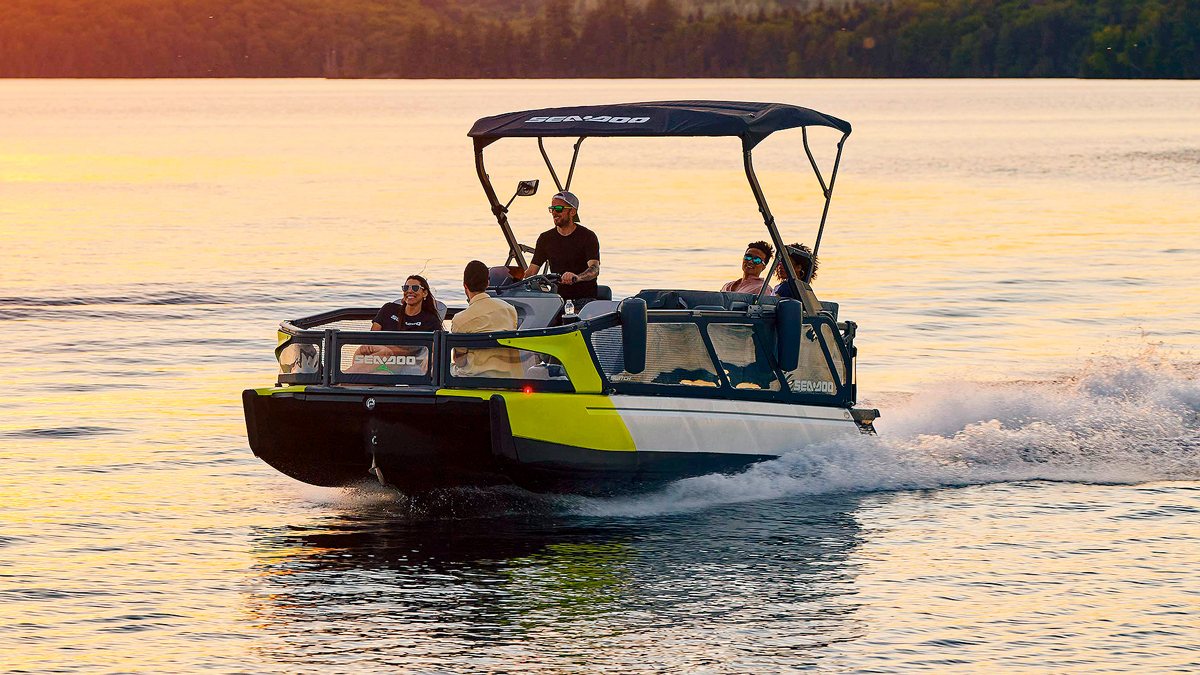Virginia Boating License: Essential Requirements and Steps to Obtain It
Virginia is home to a vast network of waterways that offer an array of recreational boating opportunities. In order to legally operate a boat in Virginia, individuals must obtain a boating license, which ensures they have the necessary knowledge and skills to safely navigate the state's waterways. The Virginia Department of Game and Inland Fisheries (VDGIF) is responsible for overseeing boater services, including the administration of boating licenses and safety education programs.
Acquiring a Virginia boating license involves enrolling in and passing a state-approved boating safety education program. These courses are designed to provide boaters with essential information on safe boating practices, equipment, rules, and regulations. In addition to obtaining a license, boaters are required to register their vessels with the state, which helps maintain the safety and integrity of Virginia's waterways.

Key Takeaways
- Obtaining a Virginia boating license is necessary to legally operate a boat in the state.
- Prospective boaters must complete a state-approved boating safety education program.
- Vessel registration is also required for boaters in Virginia to ensure compliance with rules and regulations.
Understanding Virginia Boating License
In Virginia, obtaining a boating license is a requirement for residents who wish to legally operate a Personal Watercraft (PWC) or a motorized vehicle over a certain horsepower. The Virginia Department of Game and Inland Fisheries (VDGIF) oversees most boater services in the state, including the issuance of boating licenses 1.
All PWC operators aged 14 and older, as well as all operators of motorboats with a 10 hp or greater engine, regardless of age, must complete a boating safety course 2. There are various ways to take the course, which include online options, classroom-based courses, and home-study methods. Online course providers are commercially available and approved by both the National Association of State Boating Law Administrators (NASBLA) and the VDGIF 3.
The passing of a Virginia law in 2007 made it mandatory for boaters to complete a boating safety education course 4. This law was enacted to promote safe and responsible boating practices and to reduce the number of boating accidents.
By obtaining a Virginia boating license, individuals can confidently and safely navigate Virginia's waterways, ensuring that they are following proper safety protocols and adhering to regulations. The overall aim is to make boating a more enjoyable and secure experience for everyone involved.

Acquiring Licensing and Registration
Role of DWR in Boating License Issuance
The Virginia Department of Wildlife Resources (DWR) plays an essential role in issuing boating licenses and registrations within the state. All Virginia residents must obtain a boating license to legally operate a Personal Watercraft (PWC) or a motorized vehicle over a certain horsepower. The DWR oversees and manages most boater services, ensuring that boaters meet the necessary requirements before venturing out on the water.
Online and Classroom Courses for Boaters
Boaters in Virginia have the option to choose between online and classroom courses to meet the necessary educational requirements for obtaining a license. The online course allows learners to study at their own pace, offering convenience and flexibility. On the other hand, the classroom course provides an opportunity to ask questions and interact with instructors in-person. Both options cover critical topics such as boating safety, navigation rules, and emergency procedures.
Process of Registering Watercraft
The process of registering watercraft involves titling and paying any necessary sales tax. The DWR website provides detailed information on where to register your watercraft, whether it is new, used, or documented. Boat motors and documented watercraft also have specific registration procedures to follow.
When registering a watercraft, required documents may include the Manufacturer's Statement of Origin, a bill of sale, proof of sales tax payment, and proof of ownership. Additionally, duplicate titles, registrations, and decals can be requested through the DWR.
Watercraft registration renewal is also managed by the DWR. Boat registrations typically expire on the assigned date and must be renewed to continue lawful operation on Virginia waterways.
By adhering to the Virginia Department of Wildlife Resources' boating license and registration requirements, boaters can enjoy safe and lawful experiences on the state's scenic waterways.

Cost and Renewal of Boating License
Initial Cost for Boating License
In Virginia, boating licenses are required for anyone operating a watercraft. The initial cost for obtaining a boating license involves completing a boating safety education course. Many providers offer these courses, with costs varying depending on the provider. Most courses are available both online and in-person, with prices ranging from $20 to $40. Upon successful completion of the course, the boater receives a Boating Safety Education Certificate, which serves as their license.
Renewal and Replacement of Boating License
Once the boating safety course is completed, the Boating Safety Education Certificate neither expires nor needs to be renewed. However, boaters who lose or damage their certificate can obtain a replacement card by visiting the Virginia Department of Wildlife Resources website. A Virginia Lifetime Boating Safety Education card is available for a $10 fee.
As for maintaining the validity of the boat's registration, boat owners are responsible for renewing their watercraft registration every three years. Renewals can be done online through the Go Outdoors Virginia website or by mail. The renewal fees vary depending on the length and type of the boat.

Safety Education and Certification
Safety Education Requirements for Boaters
In Virginia, all operators of Personal Watercraft (PWC) and motorboats with a 10 hp or greater engine are required to take a boating safety course. This ensures that boaters have the necessary knowledge to navigate waterways safely and responsibly. Completing a boating safety education course enhances a boater's understanding of safe practices, reducing the risk of accidents, and promoting a secure environment on the water.
Acquiring Boating Safety Certification
Various options are available for taking a boating safety course, with prices ranging from free to $54.95. These courses generally provide three hours of instruction and take approximately four hours to complete. After finishing the course, boaters receive a course completion certificate or card from the course provider. This certificate is the essential document required to operate a vessel in Virginia.
For those seeking a free boating safety course, the BoatUS Foundation's Online Course is the only free online option approved by the Virginia Department of Wildlife Resources.
NASBLA and U.S. Coast Guard Involvement
The involvement of the National Association of State Boating Law Administrators (NASBLA) and the U.S. Coast Guard ensures the quality and uniformity of boating safety education courses. Courses approved by the NASBLA carry a certain standard that is recognized across the United States. Furthermore, the U.S. Coast Guard's recognition of these courses guarantees that they meet federal guidelines, ensuring the content is both accurate and relevant.
Boaters who complete a boating safety course approved by NASBLA and the U.S. Coast Guard not only fulfill the education requirements in Virginia but also receive a certification that is valid in other states with similar regulations.
In summary, acquiring a boating safety education and certification is an essential step for all boaters in Virginia. By completing a NASBLA-approved and U.S. Coast Guard-recognized course, boaters contribute to a safer and more enjoyable experience on the water.

Boating Laws and Regulations
Virginia has specific boating laws and regulations to ensure safety and provide enjoyable experiences for boaters. In this section, we will discuss age restrictions for boat operators and the required equipment on boats in Virginia.
Age Restrictions for Boat Operators
In Virginia, there are age restrictions for operating certain types of boats. Beginning July 1, 2016, all motorboat operators of 10 hp or greater, regardless of age, and all Personal Watercraft (PWC) operators 14 years old or older must take a boating safety course. No one under the age of 14 may operate a PWC. Operators who are 14 and 15 years old must show proof of completing the required education.
Required Equipment on Boats
Virginia boating laws mandate that specific equipment should be present on boats to ensure the safety of boaters. The required equipment varies based on the size and type of the boat. Some of the essential safety equipment include:
- Life jackets: A U.S. Coast Guard-approved life jacket must be available for each person on board. Children under 13 years old must wear a life jacket at all times unless inside an enclosed cabin.
- Fire extinguishers: Depending on the size of the boat, one or more fire extinguishers may be required.
- Navigation lights: All boats must have navigation lights, which should be displayed between sunset and sunrise or during periods of restricted visibility.
- Sound-producing devices: Boats 39.4 feet or longer need to have a whistle or horn; boats shorter than 39.4 feet must have an efficient sound-producing device (e.g., a whistle, air horn, or bell).
- Visual distress signals: Boats on coastal waters, the Great Lakes, and connected waters where they can send signals to the shore are required to carry both day and night visual distress signals.
Boaters should familiarize themselves with Virginia's boating laws and regulations to ensure compliance and a safe experience while enjoying the water.

Access and Usage of Virginia's Waters
Accessing and Operating Personal Watercraft
In Virginia, boating enthusiasts have a variety of options to access and enjoy the state's waters. The Department of Wildlife Resources (DWR) provides numerous boating access points and facilities throughout the state. Motorboats, jet skis, and personal watercraft (PWC) are all popular choices when it comes to water-based recreation.
Before operating a personal watercraft, it is important to be aware of Virginia's boating laws and regulations. All motorboat operators, regardless of age, are required to complete a boating safety education course by July 1, 2016. More details about this requirement can be found on the DWR website.
When accessing Virginia's waters, it is crucial to follow a dockside safety checklist before embarking on your adventure. Some items to consider include:
- Ensuring required safety equipment is on board and functional
- Verifying that the vessel's registration is up-to-date
- Confirming proper functioning of the boat's lights and navigation system
- Checking weather forecasts and water conditions before departure

Leasing and Renting Watercraft
For those who do not own a watercraft, leasing or renting one is a viable option to experience the joys of boating in Virginia. Prior to signing a rental or lease agreement, it is important to understand your responsibilities as the operator. You may still be required to complete a boating safety education course, depending on the type of watercraft you plan to operate.
While boating access sites provide public access to Virginia's waters, there might be certain restrictions or rules specific to that location. No trespassing, camping, swimming, or public display of alcoholic beverages might be prohibited in certain areas. It is essential to learn and follow the rules of the boating access site you plan to use.
In summary, enjoying Virginia's waters safely and responsibly requires proper planning and preparation. Before accessing the water, ensure you are familiar with the relevant laws, regulations, and safety guidelines. This will result in a more enjoyable boating experience for everyone involved.

Miscellaneous Information on Virginia Boating
Fishing as a Commercial Fisherman
In Virginia, commercial fishermen are required to follow specific regulations and obtain necessary permits. To operate a boat for commercial fishing purposes, one must comply with state and local laws. It is essential for commercial fishermen to be knowledgeable about the laws and guidelines in order to maintain a safe and sustainable fishing industry. It is recommended that commercial fishermen wear a lifejacket while working on the water to ensure their safety.
Special Conditions for Armed Forces
Members of the United States armed forces, such as those who are part of the United States Navy or serving as a surface warfare officer, need to be aware of certain special conditions in Virginia for boating. This includes the requirement for any surface warfare officer or enlisted surface warfare specialist to complete a Virginia-approved boating safety course. Military personnel who possess a valid lifetime Virginia boating safety education card are exempt from this requirement. Furthermore, those who are an active duty officer of the deck underway are exempt from Virginia's boating safety education requirement.
If a boat is registered in another state, individuals in the armed forces stationed in Virginia must follow Virginia's boating laws and regulations. This includes carrying the proper documentation like a boating safety education card on board the vessel.
Recognition of Foreign Government Boating License
Virginia acknowledges boating licenses issued by foreign governments, such as the Canadian government, provided that the license is in compliance with the boating laws of the respective country. If a resident of Virginia holds a valid foreign government boating license and the vessel is registered in another state or country, they are still expected to adhere to Virginia's boating regulations. Boaters should carry proof of their foreign government boating license and any required documentation on board while operating waters in Virginia to avoid any legal issues.
Frequently Asked Questions
How much does a Virginia boating license cost?
The cost of a Virginia boating license varies depending on the course provider and the format of the course, such as online or in-person. Some courses can be taken for free, while others may have a fee. It is essential to research different course providers and pricing to choose the best option for your needs.
What are the age requirements for a VA boating license?
In Virginia, the boating safety education requirement applies to all motorboat operators regardless of age. This requirement ensures that everyone who operates a motorboat on public waters in Virginia has a basic understanding of boating safety and Virginia's boating laws.
How can I obtain a Virginia boating license?
To obtain a Virginia boating license, you must complete a boating safety course that is approved by the National Association of State Boating Law Administrators (NASBLA). These courses can be taken online or in-person, and upon successful completion, you will receive a certificate or card as proof of your boating safety education.
Are there free boating license options in Virginia?
Yes, there are free boating license options in Virginia. Free online and in-person courses may be available, but it is important to ensure that they are NASBLA-approved to meet Virginia's boating safety education requirements. Research each provider and course before enrolling to make sure it meets your needs and fulfills Virginia's requirements.
What is included in the Virginia Boating Safety Course study guide?
The Virginia Boating Safety Course study guide covers important topics such as responsible boating, navigation rules, legal requirements, emergencies and accidents, and water sports safety. The purpose of this guide is to educate boaters on essential safety practices, Virginia's specific boating laws and regulations, and help boaters become more confident and knowledgeable while on the water.
Where can I find Virginia boating license practice tests?
Virginia boating license practice tests can be found through various online course providers and boating safety education websites. Before taking a practice test, ensure that it is from a reliable source and covers topics relevant to Virginia's boating laws and safety regulations. These practice tests can help you prepare for the final exam of your NASBLA-approved boating safety course.
Footnotes
- https://www.dmv.com/va/virginia/boating-license ↩
- https://dwr.virginia.gov/boating/education/requirement/ ↩
- https://dwr.virginia.gov/boating/education/requirement/steps-to-requirement/ ↩
- https://dwr.virginia.gov/boating/education/faq/ ↩
Meet Charlie Hardcastle, the undisputed king of the sea, and Editor-in-chief of Sea Magazine. Charlie's passion for boating runs deeper than a kraken's lair, and his years of experience on the water make him the ultimate boating guru. When it comes to boats, Charlie's knowledge is as vast as the ocean. He knows everything from the latest technology to the best locations for water enthusiasts. But Charlie's expertise isn't just limited to boating mechanics and history. He's also a marketing whiz, with a keen understanding of how the industry is adapting to changing consumer preferences. He knows how to effectively reach new audiences, whether they're looking for a luxury yacht or a modest pontoon boat. In short, Charlie is the complete package, a one-stop-shop for all things boating. So if you're looking to learn about the latest technology, marketing strategies, or just want to hear some epic sea tales, Charlie Hardcastle is your guy.